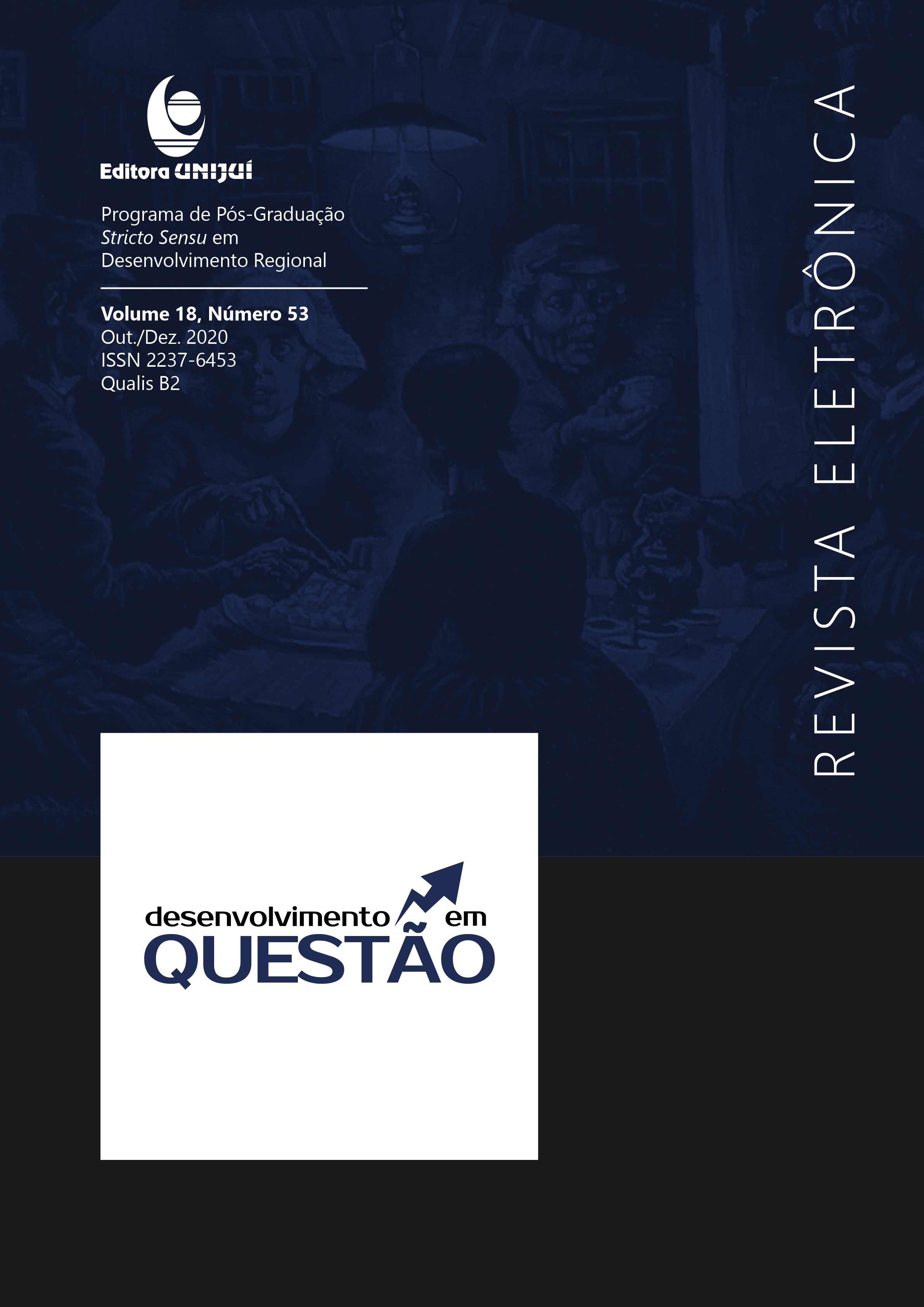Organizational Practices in the Constitution of the Right to Culture and to the City: Understanding the Struggle for the Rights of a Cultural Organization in Goiás City, Brazil
DOI:
https://doi.org/10.21527/2237-6453.2020.53.105-119Palabras clave:
Practices of organization. Rights. Cities. Multi-sited Ethnography. Goiás.Resumen
The objective of this paper is to discuss how the organizational practices in the field of culture constitute the development, promotion and access to rights to culture and to the city in Goiás city, Goiás, Brazil. We bring the theories of the field of Studies Based on Practices (SBP) closer to the Law in order to understand the non-institutionalized legal phenomena of the organizational processes. From a multi-sited ethnography carried out in the Historic Center of the city of Goiás, Goiás, a place classified as a World Heritage Site by UNESCO between August 2014 and December 2015, we highlight the processes by which organizational practices, as producers of spaces in cities, constitute Rights when recognizing or neglecting the occupation of the urban space by certain social groups. We emphasize how the analysis of organizational processes can contribute to a debate on Rights from a perspective of legal pluralism from the daily life of cities and highlighting the relevance of understanding the occupations of urban spaces as a way of reconfiguring relations between the State and civil society.
Descargas
Publicado
Cómo citar
Número
Sección
Licencia
Ao publicar na Revista Desenvolvimento em Questão, os autores concordam com os seguintes termos:
Os trabalhos seguem a licença Creative Commons Atribuição 4.0 Internacional (CC BY 4.0), que permite:
Compartilhar — copiar e redistribuir o material em qualquer meio ou formato;
Adaptar — remixar, transformar e criar a partir do material para qualquer fim, inclusive comercial.
Essas permissões são irrevogáveis, desde que respeitados os seguintes termos:
Atribuição — Atribuição — os autores devem ser devidamente creditados, com link para a licença e indicação de eventuais alterações realizadas.
Sem restrições adicionais — não podem ser aplicadas condições legais ou tecnológicas que restrinjam o uso permitido pela licença.
Avisos:
A licença não se aplica a elementos em domínio público ou cobertos por exceções legais.
A licença não garante todos os direitos necessários para usos específicos (ex.: direitos de imagem, privacidade ou morais).
A revista não se responsabiliza pelas opiniões expressas nos artigos, que são de exclusiva responsabilidade dos autores. O Editor, com o apoio do Comitê Editorial, reserva-se o direito de sugerir ou solicitar modificações quando necessário.
Somente serão aceitos artigos científicos originais, com resultados de pesquisas de interesse que não tenham sido publicados nem submetidos simultaneamente a outro periódico com o mesmo objetivo.
A menção a marcas comerciais ou produtos específicos destina-se apenas à identificação, sem qualquer vínculo promocional por parte dos autores ou da revista.
Contrato de Licença (para artigos publicados a partir de 2025): Os autores mantêm os direitos autorais sobre seu artigo, e concedem a Revista Desenvolvimento em Questão o direito de primeira publicação.











